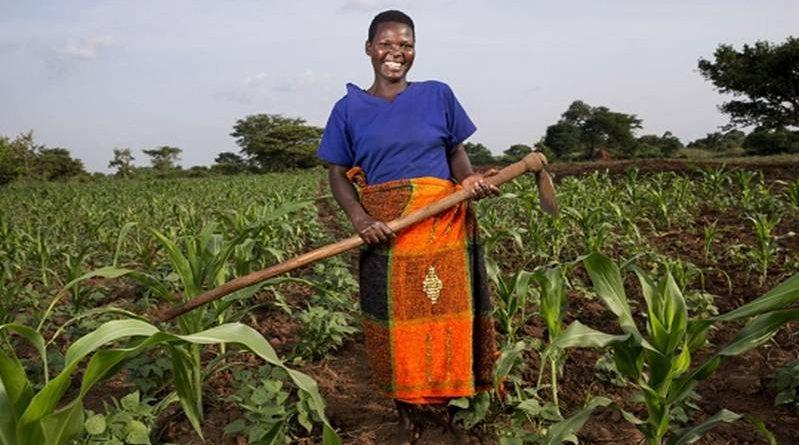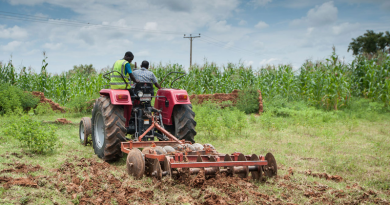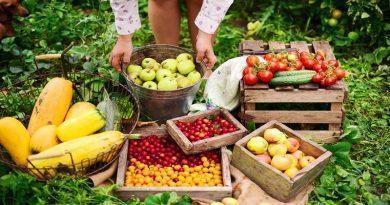Adoption of technology can assist smallholder African farmers weather climate change – Chimaobi Agwu
Case studies from all throughout Africa show the benefits that even the most rudimentary mobile technology can provide smallholder farmers. In order to assist the farmers on the continent in reducing the effects of climate change, it is crucial to promote inclusive access to digital technology, particularly mobile-based technology.
In their jointly written paper, Towards a Connected Climate, Vodacom, Vodafone, Safaricom, and the United Nations Capital Development Fund support this claim. The paper is the third of a six-part series that was released as a part of the Africa.Connected initiative, which was started to assist bridge the digital inequalities impeding long-term development in Africa’s major economic sectors, like agriculture.
Given that smallholder farmers make up such a sizable portion of the farming industry, it is urgent to use technology to help them become more resilient. On the continent, there are 250 million smallholder farmers, according to estimates. However, despite having 25% of the world’s arable land, Sub-Saharan Africa only contributes 10% of the world’s agricultural output, according to McKinsey.
It is essential to sustainably increase farming productivity, and technology can be a powerful instrument in this process. The markets where Vodacom operates on the continent provide anecdotal evidence of this evolution, with smartphone adoption still low but small-scale farmers not falling behind, according to Takalani Netshitenzhe, External Affairs Director for Vodacom South Africa.
Affected by climate change
excessive weather conditions, including increased intensity and frequency of droughts, excessive heat, irregular rainfall patterns, stronger storms, and flooding, pose a serious danger to agricultural development throughout Africa. Generally speaking, farmers in developing countries are more susceptible to these shifting weather patterns than farmers in rich countries. Extreme and unpredictably changing weather patterns raise agricultural volatility, reduce livestock outputs, and increase the risk of pest and disease outbreaks, all of which have a significant negative economic impact. To this aim, Vodacom is still committed to cutting its carbon emissions by 50% by 2025 in order to help the governments of the markets in which we operate meet their climate change commitments.
There is no doubting that, especially for those living in underdeveloped and underserved areas, the introduction of mobile-based technologies must be accompanied with access to inexpensive devices, network coverage, and affordable data. In order to achieve this goal, the public, corporate, and civil society sectors must keep working together to connect rural, underserved areas, making sure that no one is left behind, continues Netshitenzhe.
The foundation for success is being laid.
Vodacom has made considerable efforts in responding to this call to action, expanding network coverage throughout rural areas in its markets and providing millions of Africans with accessible handsets to date.”Examples show how simple mobile-based technology can unlock opportunities, even for farmers using entry-level feature phones, no matter where they are based,” adds Netshitenzhe. This is true throughout the continent where Vodacom operates.
In order to achieve inclusion for everyone, products and services must be customized for each market segment. In areas where smartphone adoption is still low, it is also necessary to develop and make accessible novel solutions that are not data-driven in order to reorient the developmental agenda. Small-scale farmers can join the agricultural value chain simply thanks to platforms based on URL and USSD that provide access to banking services and farming prospects.
Through short message service (SMS), unstructured supplementary service data (USSD), and interactive voice response (IVR), the M-Kulima mobile platform in Tanzania links smallholder farmers to a variety of data and resources. M-Kulima gives crucial market information to help farmers achieve the highest price for their crops as well as timely weather forecasts that assist farmers in adapting their farming practices to climate change. In order to promote financial inclusion, it is also integrated with the financial services platform M-Pesa. This platform offers a mobile-phone-based money transfer service and facilitates payments and micro-financing. The end-to-end DigiFarm platform in Kenya, which is similar to M-Kulima in that it is accessible by USSD or app, offers everything from basic agricultural assistance to more sophisticated and automated help.
In order to increase the accessibility and profitability of agriculture for women in South Africa, Vodacom collaborated with UN Women and South African Women in Farming (SAWIF) to create and implement the Women Farmers Programme. This initiative teaches women how to use apps to connect with customers and unleash tremendous economic growth. More than 2000 women have been taught as part of the initiative, and the SAWIF database of farmers is now digitized and accessible to all the women who have received training in computer literacy and fundamental business management. The beneficiaries of this initiative have provided testimonies detailing how adopting technology has altered their approaches to both farming and technology adoption.
Examples like this demonstrate how mobile technology not only opens up new income options for farmers but also gives them the self-assurance to use it and help their school-age children with their schoolwork.
The Covid-19 pandemic has shown that digital transformation is important for the development agenda, and as a result, information and communications technology companies must quicken the pace of communication barrier removal by concentrating on the roll-out of mobile and fixed broadband, affordable devices, digital literacy, and affordable data.




